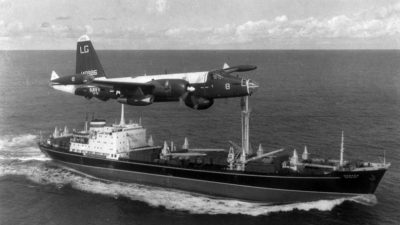Cuba, Ukraine and the New Missile Crisis. Cold War 2.0

All Global Research articles can be read in 51 languages by activating the Translate Website button below the author’s name.
To receive Global Research’s Daily Newsletter (selected articles), click here.
Click the share button above to email/forward this article to your friends and colleagues. Follow us on Instagram and Twitter and subscribe to our Telegram Channel. Feel free to repost and share widely Global Research articles.
***
The October 1962 missile crisis that kept humanity in suspense ended with the signing by Kennedy and Khrushchev of the Nuclear Test Suspension Agreement (1962) which included the withdrawal of Russian missiles into Cuban territory in exchange for the withdrawal of US missiles stationed in Turkey, appearing in its small print the sine qua non condition of “no US invasion of the island.”
This agreement has protected Cuba for 60 years from a US invasion, establishing as a counterpart the figure of the “blockade” that has remained in force to date.
The cessation of the United States blockade against Cuba, demanded for the thirty-first time in the General Assembly of the United Nations and approved overwhelmingly by 187 votes to 2 (US and Israel) and Ukraine’s abstention reaffirm freedom of trade and navigation in the face of an anachronistic blockade imposed by Kennedy in 1962. In addition, the automatic renewal by the US for another year of the trade embargo on the island would threaten the current international financial and political system and could mean losses for Cuba estimated at about $7 billion.
Utopia would be the normalization of relations between Cuba and the US, final destination of a route marked by the necessary (termination of the energy block) and the possible (suspension of the anachronistic blockade) to what seemed impossible (normalization of relations between Cuba and the United States). The road ahead was marked by the challenges of ending the energy blockade of the island,
- Cuba’s withdrawal from the list of “States Sponsoring Terrorism”,
- the repeal of the Helms-Burton Act and finally,
- the suspension of the anachronistic blockade in force since 1962 that would give way to the exchange of ambassadors and the desired normalization of relations between Cuba and the United States.
Ukraine has already received the status of a candidate country for the European Union and in the event that it is admitted as a full member and continues the dispute with Russia, Article 42 of the Treaty on European Union would oblige EU countries to enter into direct conflict with Russia.
Accordingly, the maintenance of the embargo against Cuba could generate a vacuum of unpredictable results in the middle of Cold War 2.0 between the US and Russia that could end up drawing a new geopolitical cartography in the Caribbean.
Thus, Russia would be forced to move its pieces and place them strategically in the so-called US “backyard” with the unequivocal aim of expanding the Russian military radio, as reported to the Russian news agency Sputnik by the Head of the Defense Committee of the Upper House of the Russian Parliament, Victor Borndarev,
“the establishment of a Russian military base in Cuba in a context of increasing US aggression, would respond to National Security interests”, and the Kennedy-Khrushchev Missile Crisis could be revived (October 1962) and the subsequent signature with Khrushchev of the Nuclear Test Suspension Agreement (1962).
*
Note to readers: Please click the share button above. Follow us on Instagram and Twitter and subscribe to our Telegram Channel. Feel free to repost and share widely Global Research articles.
Germán Gorraiz Lopez is a political analyst and frequent contributor to Global Research
Featured image: A US Navy P-2H Neptune of VP-18 flying over a Soviet cargo ship with crated Il-28s on deck during the Cuban Crisis. © Wikipedia

